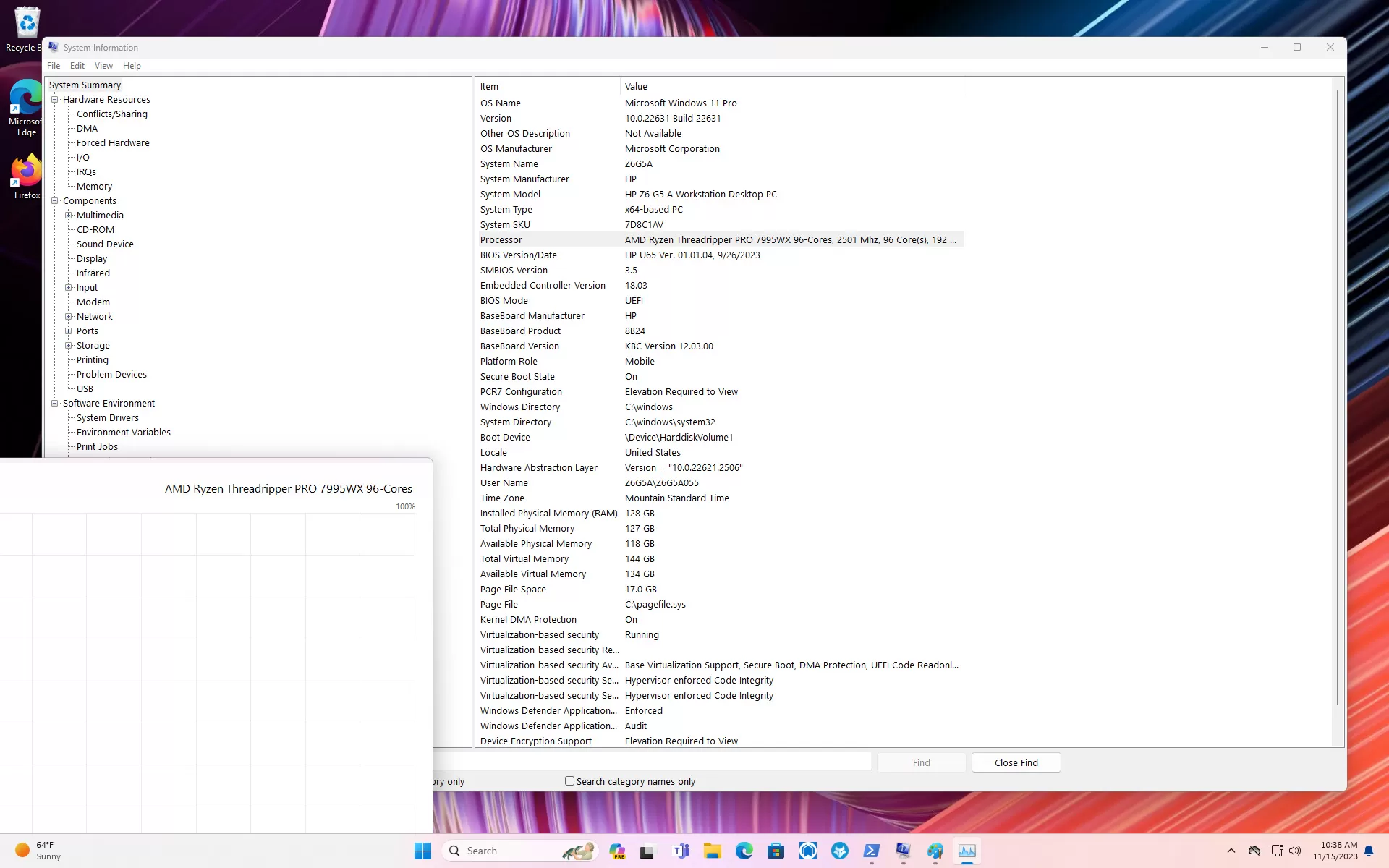“Squeezes”, “20%”. Interesting word choice. Feels almost like downplaying. When, in reality, 20% is massive, especially on a CPU like the Threadripper.
“Shits out an extra 20%” u happy?
Ubuntu Linux excretes 20% more performance
“Lays out a girthy steaming log in the CPU performance graph”
Post from November 2023, but still interesting
6.6 kernel has EEVDF scheduler, would be interesting trying it with that.
See what they should be doing in the FOSS community is loading up that kernel with bloatware that sends ‘anonymous’ telemetry to third parties to maximize profits for the shareholders at penguin central…
This is the best summary I could come up with:
Going back to the original AMD Ryzen Threadripper processors, Linux has long possessed a performance lead over Microsoft Windows.
With Linux typically being the dominant OS of HPC systems and other large core count servers, the Linux kernel scheduler has coped better than various flavors of Windows when dealing with high core count processors.
Ubuntu 23.10 was run for providing a clean, out-of-the-box look at this common desktop/workstation Linux distribution.
The HP Z6 G5 A for all testing was configured with the Ryzen Threadripper PRO 7995WX at default frequencies, 8 x 16GB DDR5-5200 Hynix RDIMMs, Samsung MZVL21T0HCLR-00BH1 NVMe SSD, NVIDIA GeForce RTX A4000 16GB graphics.
A full review on the HP Z6 G5 A Threadripper workstation will be published in a separate article on Phoronix in early December.
From there the up-to-date Windows 11 Pro Build 22631 (H2’23) was tested against Ubuntu 23.10 with its stable release updates.
The original article contains 436 words, the summary contains 148 words. Saved 66%. I’m a bot and I’m open source!
As much as I want such news to sound good, there’s still massive problems with UX and performance scheduling on Linux.
If you don’t want compilation to take all cores, use one or two cores less for the compile. I frequently compile C++ code, almost always I just let it max out 100%, haven’t been really bothered by the lag. When I’m in a teams meeting for instance it can cause noticable lag so then I do
ninja -n 8orninja -n 12and problem solved.I have actually tried this solution as well and I had to reduce the compilation jobs to like 4 (usually would be 16 with my 16 logical cpus) before it helped any. That is simply too much of a reduction to be worth it, it makes compilation take ages.
And in the end, that’s still just a workaround to the more general problem that is the fact that the desktop environment and user input is not prioritised in the scheduler, when it really should. I really want Linux to succeed so it pains me to see Windows do better in this situation.
Huh odd, I guess it depends quite heavily on the system? Just to check I cleaned my build folder and am building now, ~700 files that take around 5 minutes to compile. I don’t notice a thing, CPU (Ryzen 7 7700X ) is fully maxed out. I know that I do notice it on my laptop, but there reducing from 16 to 12 or even 14 is enough. Having to reduce to 4 is very different from what I experience. Currently on manjaro, the laptop has ubuntu.
Hmm curious. I guess I might need to investigate more
I feel like this shouldn’t be news worthy
Comparing Windows “out of the box” with all the laptop manufacturers bloatware, to a fresh install of Ubuntu.
At least be less blatant with the bias. Get a fresh install of Windows and try again.
I’m not certain that OEM bloatware will account for a 20% performance loss.
On a threadripper at that. We‘re not talking about a core2duo
They have at least a 10,000 USD machine with a very high end GPU, a 192 core CPU and 128gb of ddr5 ram.
Bloatwear isn’t much of a consideration here
I don’t think there’s any threadripper laptops, and this article specifically says it’s a workstation.
microcuck be sad







